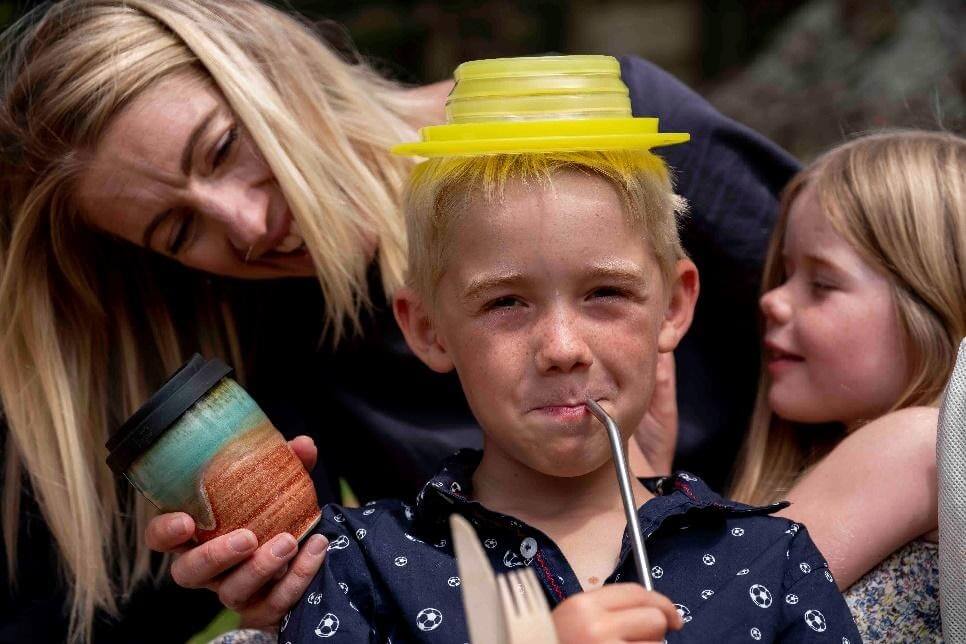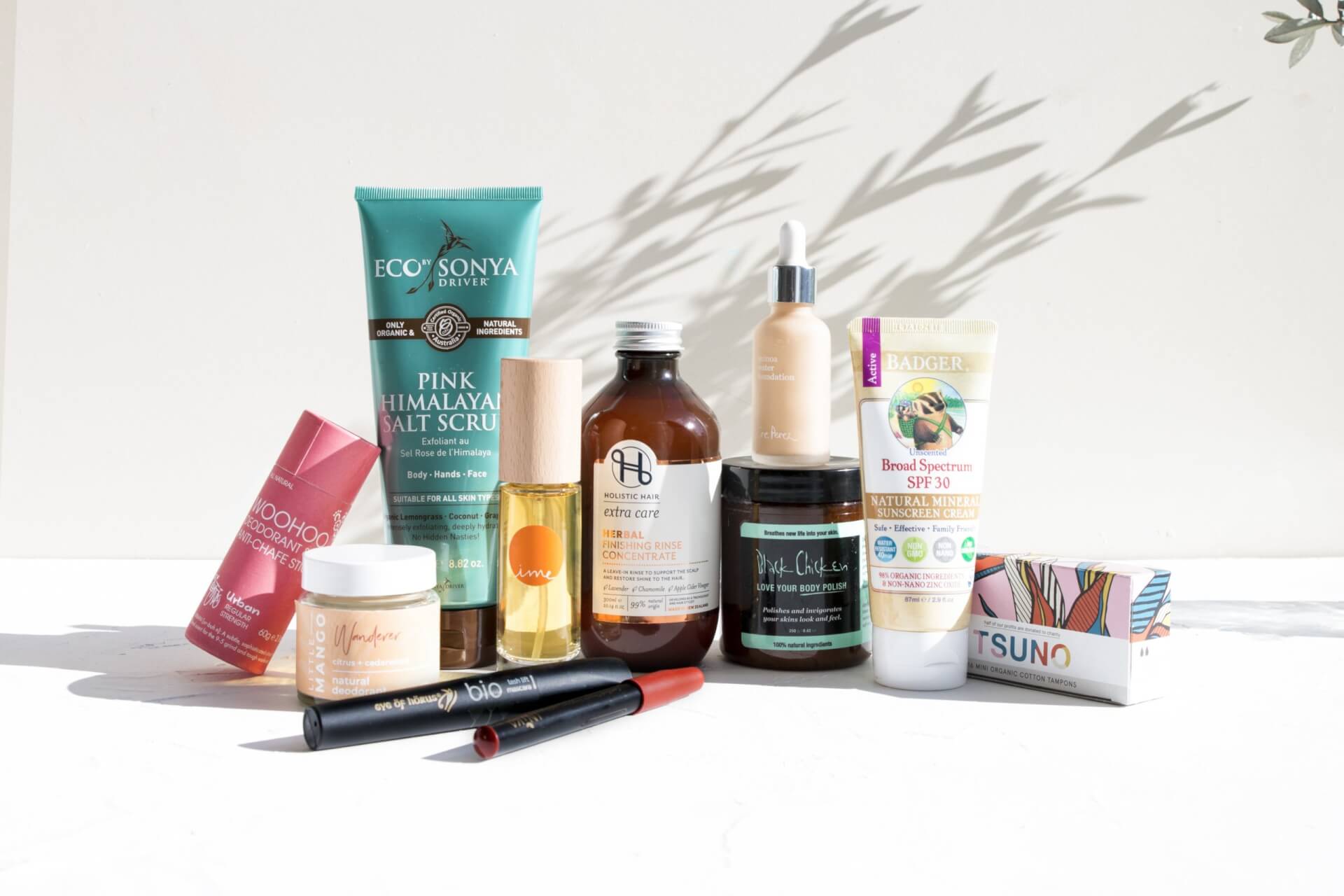Beauty, Deodorants, Food, Gifts, Home & Living, Lifestyle, Makeup, Natural Beauty, Natural hair care, Period Care, Skincare, Sustainability, Waste free, Words from Juliet Dale - The Great Eco Journey
50 Ways to Reduce your Waste – from Juliet at The Great Eco Journey
Whether you are just starting out, or are already well on your waste-less way, here you’ll find a myriad of ideas to reduce your waste. My biggest piece of advice though is do not go into Eco-Warrior-Overdrive and try to do them all in one fell swoop! Instead, here’s my suggestion for how to approach this list:
- Firstly, tick off (mentally or physically) the ones you’re already doing, or don’t apply to you, because you deserve that sense of satisfaction!
- Secondly, pick out a few that sound right for you and your household. Chances are, that for whatever reason, some of the below ideas will be no-goes for you, and that’s ok. But with this many to choose from, you should be able to find a good handful that ARE doable.
- Choose ONE, that’s right, just ONE, to get started. Give it as much time as you need to incorporate it into your home and make it a habit.
- Come back to your list, tick it off, and choose another.
I’d love to hear in the comments below which ones you’re already doing, and which ones you’re keen to take on!
- Drink Bottle – Buy a reusable one such as a glass drink bottle, or hunt around your home and find something you already have.
-
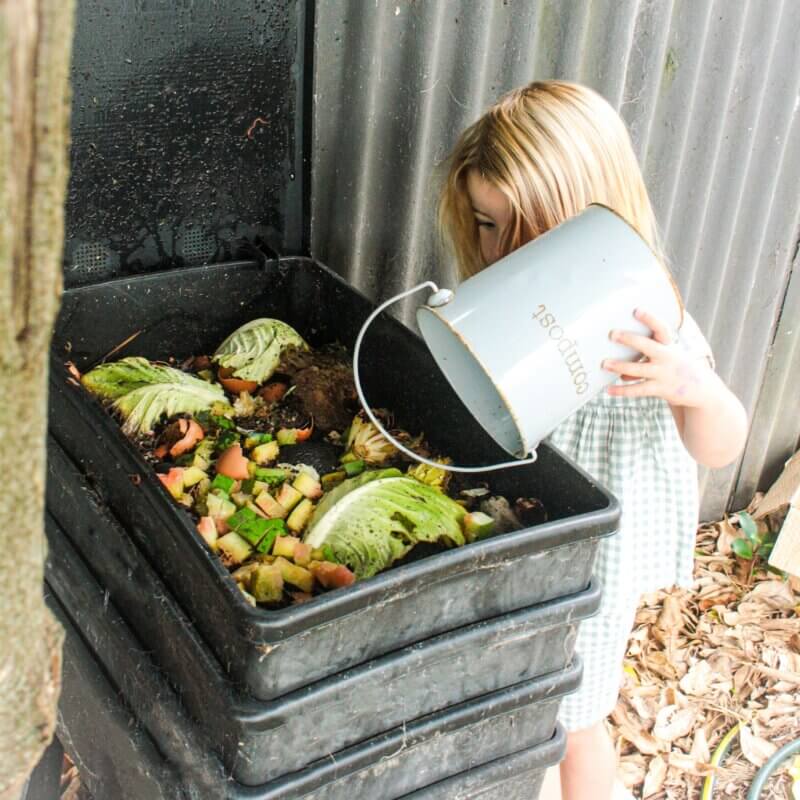
Compost your organic waste Compost – Diverting all those food scraps from landfills is a great way to reduce your waste. If you don’t have space at home, look around for a local composting collective, or try the app Sharewaste.
- Straws – Just use your lips. Or if you are a real sucker for straws, buy your own reusable straws and keep them handy to whip out when you’re next slurping a smoothie.
- Multipurpose Cleaner – You can make your own multipurpose cleaner at a fraction of the cost of the store-bought ones. Just soak your lemon skins in white vinegar for a couple of weeks, strain, and dilute 1:1 with water. Full guide here. And check out Oh Natural’s great range of waste free cleaning products here
- Toothbrush – Update your plastic version with a compostable bamboo one.
- Cling Film – Quit being clingy by opting for beeswax wraps to wrap your food. Instead of covering a bowl of leftovers with clingfilm, just pop a plate over instead (and vice versa), or try reusable stretchy silicone lids.
- Razors – Ditch the disposables and expensive razors and invest in a Reusable Safety Razor; one razor for life with affordable blades
- Shaving foam/gel – Switching to a shaving soap bar and brush will save you money and waste.
- Mailbox – Put a No Junk-mail sign on your letterbox and enjoy the feeling of less junk!
- Preloved – Next time you really need something, whether it be a book, a kitchen utensil or a dress, consider if you can find it second hand from places like ops shops, trademe, Facebook marketplace and other second hand stores
-
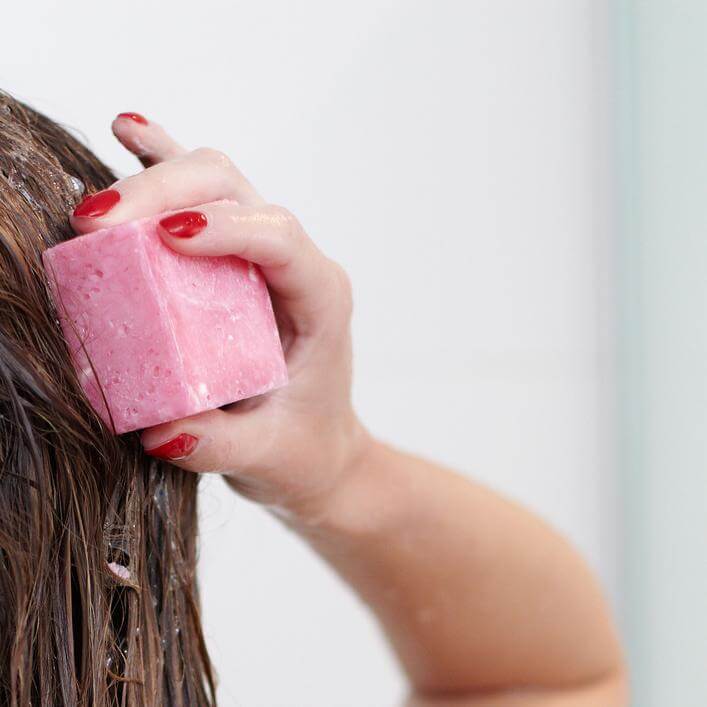
Plastic Free – Solid Haircare Bars Soft Plastics – Check out NZ’s Soft Plastic Recycling scheme to recycle your soft plastics
- Hair washing – Try waste free shampoo and conditioner bars! They’re easy to use, last for ages, and are waste-free.
- Repairing – Reduce your textile waste by having a go at some basic repairing. In this hectic world, it is insanely therapeutic to take some time to sit still and fix something, and the sense of satisfaction is well worth it! Or find someone else who can do it.
- Coffee Pods – Find out how and where you can recycle your coffee pods through the Nespresso website or Terracycle recycling schemes.
- Dish brush – Look for waste free alternatives to cleaning products
- Dish liquid – Refill it or try a bar of dish soap and soap shaker.
- Wrapping paper. Avoid glittery or shiny wrapping paper as it can’t be recycled. Reuse wrapping paper you already have, get creative with kids’ artwor or try furoshiki, a Japanese method of wrapping with fabric or use secondhand scarves.
- Ice cream – Go for a cone rather than a cup.
- Paper towels – Cut some old fabric into squares and pop them in a jar. Presto! You now have ‘UN Paper Towels’. Simply use, throw in the wash, and pop them back in the jar once clean. Or check out Good Change’s Reusable Bamboo eco-wipes.
- Berries and fruit – Picking berries and fruit when they’re in season, is a lot of fun, and you can freeze the extras. Take along your reusable container to reduce your waste HINT: There are usually discounts towards the end of the season.
- Dry Shampoo – Did you know you can make your own dry shampoo from cornflour and cocoa powder? You can also buy natural, waste-free dry shampoos.
-
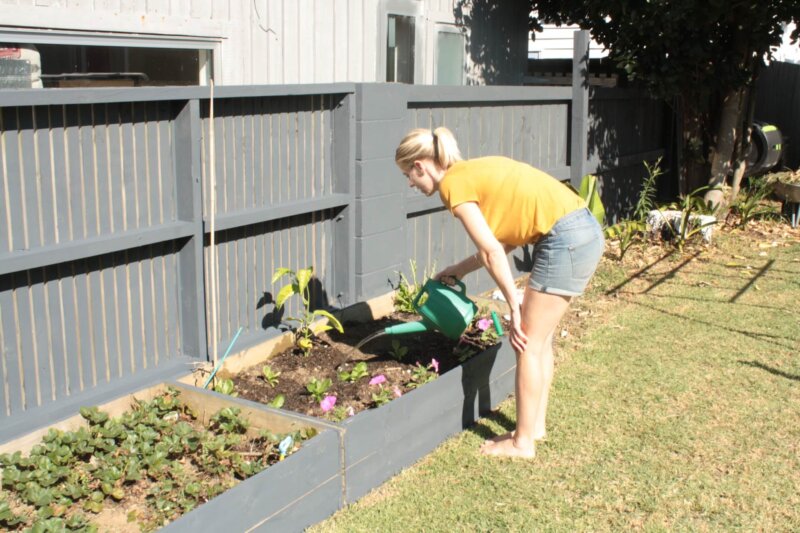
Grow your own veges! Fruit and veg – Growing something yourself is a great way to reduce your waste by avoiding packaging waste and CO2 emissions. If there isn’t space at home, try a finding a local community garden to join.
- Takeaway Cup – Say no to single-use takeaway coffee cups by bringing your own! You can bring a mug from home/work, make your own from a jar, or invest in a reusable one to treasure.
- Sushi and other Takeaways – Rock up to your sushi bar or takeaway place with your own reusable container such as these Bento boxes. Some stores will even give you a discount for using one.
- Produce – Take your own reusable produce bags, or leave your fruit and veg naked, do you really need that plastic bag?
- Clothes pegs – As your plastic pegs gradually give up the go, replace them with stainless steel ones. They will last you a lifetime!
- Handkerchief – Make or buy a few hankies and say goodbye to tissues.
- Butter – The paper wrapping off butter is compostable, so it can be a great waste-free spread alternative. To keep ours soft, we store it in a butter dish.
- Bread – Take your own bread bag to the supermarket or bakery, or have a go at making your own. You could invest in a second-hand breadmaker, or try this amazingly easy no-kneading bread recipe!
- E-waste – Recycle your electronic waste. You can find a list of e-waste recyclers here.
- Meat – Reducing your meat intake is a great way to cut your carbon footprint as well as your waste. You can also take your own containers to your local butcher or some supermarkets.
- Tea – Some teabags contain plastic! Find out which ones here. Alternatively, you could opt for loose leaf tea and use an infuser.
- Face-washing – Drop the disposable face wipes and instead use a good old-fashioned organic cotton cloth or reusable makeup pads.
- Ask for no receipt – Did you know that most receipts are plastic coated and non-recyclable? When possible, say ‘no receipt please’.
-
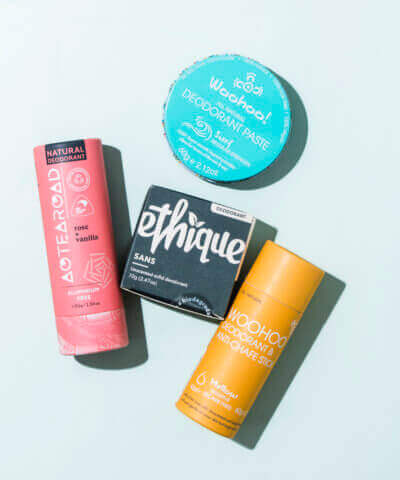
Waste Free Deodorant Soap – Avoid plastic bottles by using a good old bar of soap!
- Deodorant – There are so many natural and plastic-free deodorant options out there. Ditch the plastic ones for a natural deodorant paste.
- Reusable nappies – Even just using one reusable nappy per day can reduce your waste significantly and save you a lot of money.
- Wash your clothes less – Break the habit of washing something every time it’s worn. Look at it, smell it. Does it actually need a wash? Maybe you can spot clean it instead?
- Skincare – There is an array of waste-free skincare; cleansers, moisturisers, eye creams and more.
- Laundry powder – As well as other cleaning products, you can refill your laundry powder at many refilleries or opt for completely waste-free soapberries.
- Periods – Menstrual cups, period underwear and reusable pads are all great options to reduce your use of single-use period products.
- Lunchbox – Use what you have in your cupboards to create waste-free lunchboxes for yourself or the kids or buy a metal lunch box instead.
- Makeup – That’s right, there is even waste-free and refillable makeup available! Check out some options here.
- Cotton buds – Look for biodegradable ones.
- Dishcloth – Go for a reusable, compostable dishcloth.
-

Waste-free toilet paper anyone? Toilet paper – There are a surprising number of low/zero waste toilet paper options available in NZ. Check out this comparison to find out which could work for you.
- Cutlery – Pop a small pouch in your handbag, backpack, pushchair, office drawer or glovebox with a knife, fork and spoon in it, so you can say no to the disposable ones. You can easily make your own, or there are cute bamboo options available.
- Toothpaste – Try using toothpaste tablets instead of toothpaste.
- Toys – Look for quality over quantity as well as second-hand / hand-me-downs. Even better, rent them from a toy library!
- Coffee – Look into reusable coffee pods or recycling your pods (see point #14). You can also refill your coffee at your local roasters or refillery.
And ultimately, it all comes down to this change in mindset: Buy less, choose well, make it last. (Words from Vivienne Westwood).
Waste reduction is not like a fad diet. It’s a journey. And it’s a journey that can give a lot of pleasure when done gently and kindly.
And remember, it’s about progress, not perfection.
Juliet is the founder of The Great Eco Journey. You can follow along with her & her family’s journey on Instagram & Facebook

